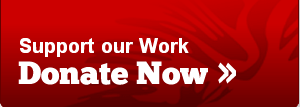Sierra Leone has taken the leadership role in global education, with President Julius Maada Bio, will be co-chairing the High-Level Steering Committee (HLSC) Leaders Group with the Director-General of UNESCO in September, and Dr. David Moinina Sengeh, Minister of Basic and Senior Secondary Education on the 23rd-24th February co-chaired the HLSC Sherpa Group with the UNESCO Assistant Director-General for Education.
The 2030 Agenda for Sustainable Development comprising 17 goals, adopted by the global community in September 2015, is a plan of action for people, planet and prosperity.
Established in 2016, the SDG-Education 2030 Steering Committee is the global coordination mechanism for the education goal, Sustainable Development Goal 4 (SDG4).
Its primary objective is to support Member States and partners to achieve the ten targets of SDG4 and other education-related targets of the global agenda.
Hosted by UNESCO, the Steering Committee is one of the main mechanisms for Education 2030 coordination and partnerships as defined by the Education 2030 Framework for Action.
“We are just 8 years to 2030, and we just completed the SDG 4 benchmarks last year. With 1.6b kids out of school during covid and increased commitments to education, now more than ever is when we need to transform the world through education. And the world turned to (small) Sierra Leone for leadership,” according to Dr. Sengeh.
He said the world didn’t turn to Sierra Leone unanimously because of its size or because of its economic prowess (China, France, Portugal, and other countries are bigger and have more). They did because there are not many countries that have dedicated transformational leadership in education more than Sierra Leone, among which are: 10% population added to schools, Radical Inclusion Policy roll out, updated curriculum at all levels fit for 21st Century, expanded teaching workforce, incentives, and training, increased learning outcomes at all levels (EGRA/EGMA and WAEC results), increased domestic financing of Education (22% of budget), youth and community voice inclusion , bold roll out of data and technology systems at scale and committed high-level leadership.
“Yes, we have many, many, many challenges, but by God’s grace, every day in this country, Education is better than yesterday. That’s our commitment in our global leadership role. We will ensure that there’s a new global collaboration mechanism to help the world accelerate towards SDG-4,” he said.
An inclusive high-level stakeholder partnership, the Steering Committee provides a forum for discussion and a structure to coordinate global education efforts. It is mandated to provide strategic guidance to Member States and the education community, make recommendations for catalytic action, advocate for adequate financing, and monitor progress toward SDG4 targets through the UNESCO’s Institute for Statistics and the Global Educational Monitoring (GEM) Report.
One of its key roles is to ensure the systematic alignment of approaches for education-related targets within the wider United Nations SDG structure.
The Steering Committee meets once or twice a year to discuss and take decisions on priority issues. It is supported by four working groups, which provide technical input and recommendations for adoption by the Committee as a whole.
Augustine Sankoh
Strategic Communications Analyst MBSSE
Email: asankoh@education.gov.sl





